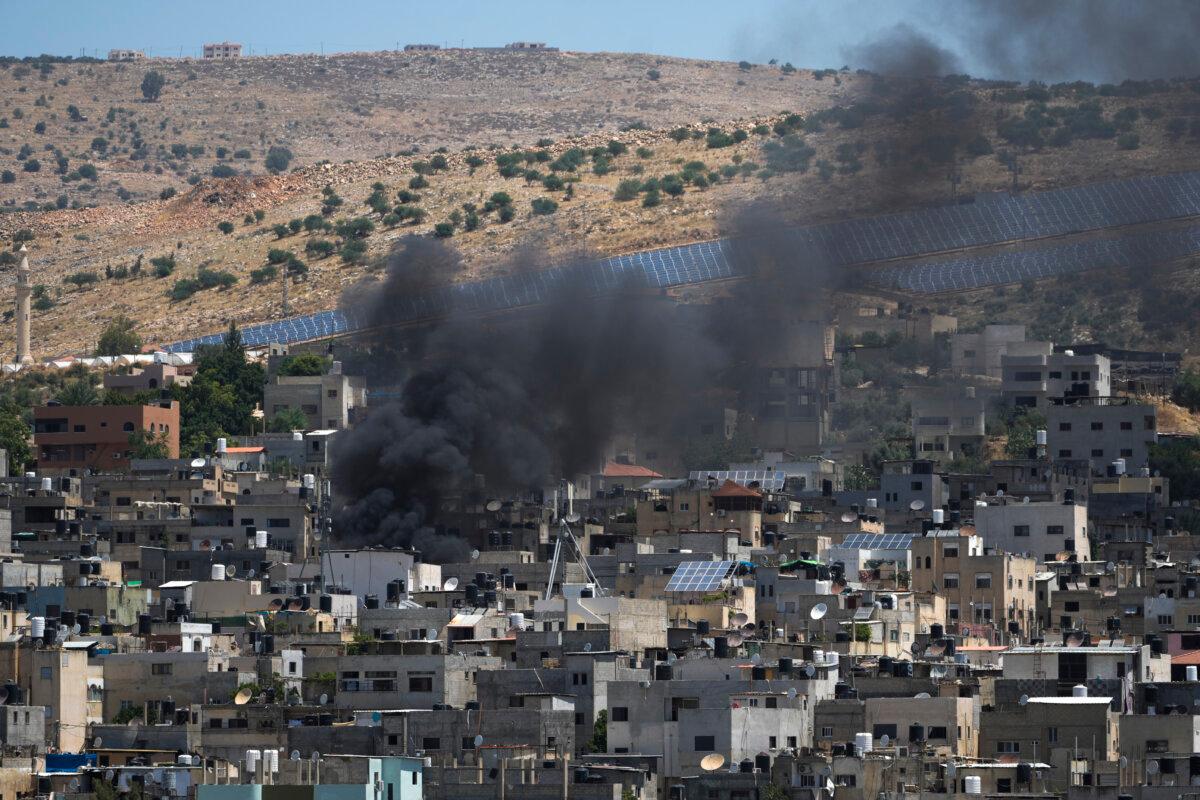An Israeli court convicted IDF soldier Elor Azaria of manslaughter in January 2017 for shooting a wounded Palestinian stabbing suspect in the West Bank.
An Israeli military veteran is facing new U.S. visa sanctions for his part in the 2016 killing of a wounded Palestinian stabbing suspect in the West Bank.
The U.S. State Department announced on July 17 that it had designated former Israel Defense Forces (IDF) soldier Elor Azaria for visa restrictions.
“As a result of this action, Azaria and any immediate family members are generally ineligible for entry into the United States,” said State Department spokesman Matthew Miller in a statement.
Mr. Miller announced that the department is preparing visa restrictions for other individuals for “undermining the peace, security, or stability in the West Bank.”
The spokesman provided few details about Mr. Azaria’s actions in his initial press statement announcing the visa restrictions. He indicated only that the Israeli soldier was involved in what the U.S. government had deemed an “extrajudicial killing.”

Mr. Azaria was charged in the Israeli court system with fatally shooting a wounded Palestinian suspect in the head. The deceased, Abdel Fattah al-Sharif, was one of two suspects who approached an Israeli military post in the West Bank in a March 24, 2016, incident. An Israeli soldier suffered stab wounds in the hand and shoulder during the encounter with the two suspects, and other Israeli troops opened fire. The other suspect was killed during the initial round of gunfire, while Mr. al-Sharif was seriously wounded and left lying on the ground.
Mr. Azaria was among several Israeli soldiers who responded to the scene. Video of the incident showed an Israeli soldier loading his rifle and firing a single shot at a man lying on the ground. Israeli military prosecutors subsequently named Mr. Azaria as the soldier who fired the shot.
Mr. Azaria was charged with manslaughter, and an Israeli court found him guilty in January 2017. He was sentenced to 18 months’ imprisonment and was released after nine months.
During a July 17 press briefing, Mr. Miller was asked if the U.S. government’s position is that the Israeli court system had not sufficiently handled Mr. Azaria’s case.
“With respect to this particular statute under which [Mr. Azaria] was designated, we are actually required to impose visa restrictions if we find a violation … if we find a gross violation of human rights,” Mr. Miller said.
The State Department spokesman acknowledged Mr. Azaria served some prison time following his 2017 conviction.
“I think people can appropriately question whether that was the right amount of time or not,” Mr. Miller said. “But we are actually separate and apart from that analysis.”
The Epoch Times reached out to the Israeli Foreign Ministry and the Israeli Embassy in Washington for comment about the visa restrictions against Mr. Azaria. Neither office responded by publication.

Many Palestinians see the West Bank as the core land on which they will base an eventual independent Palestinian state. However, the Israeli government has exercised varying degrees of control over the territory since 1967 and has allowed Israeli citizens to build settlements on the land.
Targeted killings and violent clashes have been common in the West Bank over the years.
Reuters contributed to this article.
Original News Source Link – Epoch Times
Running For Office? Conservative Campaign Consulting – Election Day Strategies!


